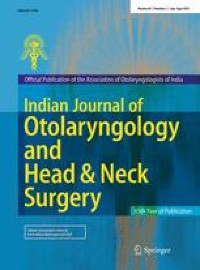Abstract
The current study aimed to adapt and validate the speech handicap index into the Kannada language, and also to investigate its psychometric properties in Kannada speaking individuals with oral and oropharyngeal cancers. This is a cross-sectional study and it was carried out in two phases. The first phase dealt with the translation of the English version of SHI into the Kannada language, and its validation on 95 healthy individuals and 25 individuals with oral or oropharyngeal cancer. The second phase dealt with the investigation of speech-related quality of life among 50 Kannada speaking individuals with oral and oropharyngeal cancers. The SHI-K has very good internal consistency (Cronbach's Alpha is 0.98) and exhibited good test–retest reliability (ICC = 0.94). The mean scores of the disordered group, for the psychosocial scores (t (118) = 25.87, p < 0.01), for speech scores (t (118) = 19.74, p <� ��0.01), for total SHI scores (t (188) = 26.45, p < 0.01), for overall rating (t (118) = 16.81, p < 0.01) were statistically significant and greater than the healthy group (p < 0.01). A statistically significant association was found between clinical-stage, total SHI scores, and rating [χ2 (4, N = 50) = 3.82, p = 0.02], but not for sex, tumor site, and type of treatment received. SHI-K is a valid and reliable tool to assess the speech-related quality of life of individuals with speech disorders. This tool can allow clinicians to plan better rehabilitation, and it can be used as an outcome tool for any treatment studies. The findings of the study emphasize the importance of considering patient priorities before commencing surgical or therapeutic interventions.



No comments:
Post a Comment